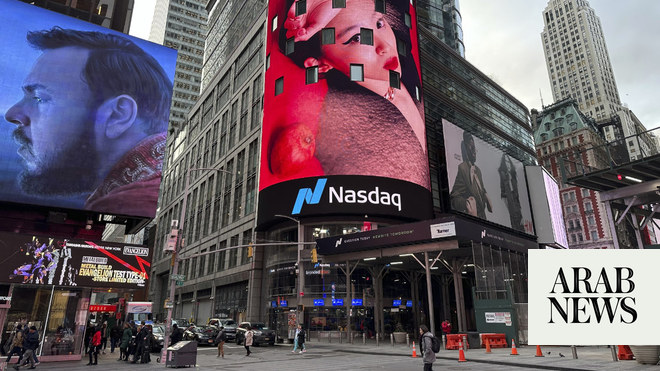
European shares bounded to record highs in the first day of trading in 2022 as markets bet on a steady economic recovery despite the rising number of Covid-19 cases caused by the Omicron variant.
Europe’s benchmark stock index, the Stoxx 600, rose to a record intraday high of 491.73 points on Monday, surpassing its November peak of 490.58, as global oil and equity markets climbed. It later closed at 489.99, up 0.45%.
The Stoxx 600 recorded a 22.4% jump last year, its second-best yearly performance in over a decade, after the global rollout of Covid-19 vaccines and government stimulus spending encouraged investors to pour money back into the markets.
The share price of airlines Lufthansa and Air France KLM were two of the biggest climbers across Europe’s equity markets after analysts at Citi forecast that the reopening of travel routes to Asia could help bolster the beleaguered travel sector. Lufthansa shares rose by almost 8.9% to €6.73 a share, and Air France KLM rose by 4.9% to €4.06.
Europe’s record start to the new year set the stage for US markets to continue their late 2021 recovery. The opening of the S&P 500 index, which climbed by a record 47.7% last year, was bolstered by a 9% jump in Tesla shares after the company’s quarterly deliveries exceeded expectations.
In another boost to US markets global oil prices, which last year recorded their biggest annual rise since at least 2016, resumed their rise towards $80 a barrel as fears that emerged late last year over the impact of the Omicron variant waned. The oil price helped shares in US oil majors Chevron and ExxonMobil climb by 1% each.
The global surge in market optimism triggered a slump in the price of gold, which is considered a “safe haven” commodity during periods of equity market volatility. The spot price of gold was on track for its biggest one-day percentage decline in more than a month on Monday afternoon after the price dipped 1.6% to $1,798.97 an ounce.
The London Stock Exchange (LSE), which has lagged behind its European and US rivals by climbing 14.3% last year, was closed on Monday for the New Year’s bank holiday. The FTSE 100 has been criticised as “old-fashioned” due to its dearth of tech companies and a glut of oil and bank stocks. It remained 6.5% below its May 2018 peak last year while the US, German and French markets all hit record highs.
Sean Darby, a global equity strategist at Jefferies, said: “Although Covid-19 variants permeated the global economy, 2021 was the year of records with many bourses closing at or near record highs, while inflows into equities surpassed their largest accumulation ever. Peering into 2022, we expect volatility to rise.”
Global oil markets are also expected to face ongoing volatility in the year ahead as traders balance the risk that the Omicron variant may stall a rebound in demand for transport fuels, against uncertain supplies from the world’s biggest oil producers.
The oil price retreated at the end of 2021 following the discovery of the new variant, from just over $85 a barrel in October to narrowly below $70 a barrel a month ago. However, analysts believe that Brent crude could be on track to reach $90 a barrel in the year ahead as Covid-19 restrictions continue to fall away.
Tamas Varga, from the oil broker PVM, said: “Infection rates are on the rise globally, restrictions are being introduced in several countries, the air travel sector, among others, is suffering, yet investors’ optimism is tangible.
“It seems that the current strain produces less severe symptoms than its predecessors, which might just help us to struggle through the fourth wave of the pandemic.”
The rising oil price is likely to spell further financial hardship for hard-pressed households in the UK, which face record high petrol pump prices and further hikes to the cost of gas and electricity bills in the months ahead.
British households and businesses can expect to be hit by the highest rate of inflation for a decade, owing to the rising cost of raw materials and ongoing disruption to global supply chains, after the consumer prices index measure of inflation surged to 5.1% in November. The Bank of England has said inflation could peak at about 6% in April – three times its target rate of 2% – as energy bills are expected to almost double from record levels this winter.












